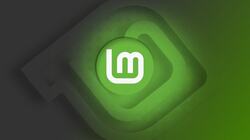Linux Mint’s Software Manager Is Now Faster & Safer
Quoting: Linux Mint’s Software Manager Is Now Faster & Safer —
Linux Mint will introduce important updates to its Software Manager app, enhancing the functionality and security of the application management tool and providing a seamless and safer computing experience for users. Here’s what it’s all about.
The new mintinstall Software Manager boasts a faster load time, with the main window appearing almost instantly upon launch. This improvement addresses one of the common gripes users had with previous versions, where the loading lag was noticeable, leading to a not-so-good user experience.
In addition, the Software Manager received a feature to disable unverified Flatpaks by default to boost security. As you know, this software distribution system has become the de facto standard among Linux users in recent years.
Original Post:
-
Monthly News – May 2024 – The Linux Mint Blog
The concerns voiced last month about GTK, Adwaita and libAdwaita were heard.
They were heard by many projects, including upstream apps, desktop environments and distributions.
They led to many discussions with a huge number of developers involved.
I want to stress the fact that some of these discussions involve GNOME developers and are very constructive.
Although no big decisions or solutions emerged yet there is a general consensus on the issues of cross-DE compatibility and independence from the GNOME project. There’s also consensus on the idea of working together on common technologies.
OMG Ubuntu:
-
Linux Mint Will Hide Unverified Flatpaks in Software Manager - OMG! Ubuntu
As you may know (and if you don’t, what’s living on Mars like? ;P), the Linux Mint Software Manager (package name mintinstall) allows users to install DEB packages from the Ubuntu/Linux Mint repositories as well as Flatpak apps from Flathub.
However, not all apps on Flathub are verified.
So, Software Manager will now show verified Flatpaks only. Unverified Flatpaks will not appear in any search results.
Now, a lack of verification isn’t necessarily a major red flag. Many unverified apps on Flathub (and other stores) come from trustworthy packagers and community efforts. But as we’ve seen on others stores, big-name software lacking verification can be iffy.
With this in mind, it’s understandable that Linux Mint is choosing to err on the side of caution and hide unverified Flatpak apps entirely from view.
Neowin:
-
The Linux Mint Software Manager now loads faster and is more secure - Neowin
The head of the Linux Mint project, Clem Lefebvre, has announced that work has been done on the Linux Mint Software Manager to improve its speed and security. As the central location for installing new software, it’s good that users won’t have to wait forever for stuff to load.
According to the blog post, the Software Manager will appear instantly when pressed, and the window will be populated more quickly than before. On the security front, you now have an option in the settings to show unverified Flatpak packages, this is off by default and it’s not recommended to enable it either.
For those not familiar, Flatpaks are a relatively new Linux packages that come with all their dependencies bundled so that you don’t have errors installing them, they’re also sandboxed for more security.
More on this but later:
-
Linux Mint Software Manager Will Disable Unverified Flatpaks by Default
In their monthly blog post, the Linux Mint team has revealed that an upcoming update to the Software Manager will disable Flatpaks by default.
Flatpaks are a popular method of releasing software for Linux that has some advantages over traditional packages. For example, many Linux distros—think Debian, Ubuntu, openSUSE Leap—prioritize stability over having the absolute latest versions of software. As a result, the software available in a distro’s repositories may lag behind until the distro is updated to the next major version.
Flatpak solves this by bundling all necessary libraries and dependencies with the app, rather than relying on the dependencies and libraries offered by the distro. This provides a way to run the latest and greatest software on virtually any Linux distro, even the stable-release ones.

